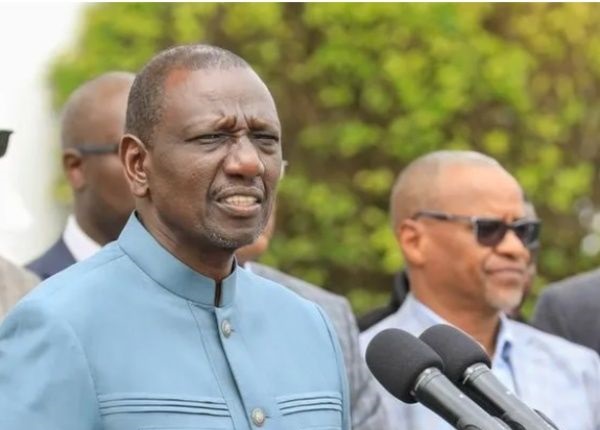Kenya's President William Ruto says the country will have to borrow more to keep the government running following the rejection of a hugely unpopular finance bill that was going to raise more money in taxes.
The president said he would withdraw the bill containing controversial tax hikes last Wednesday after deadly protests which saw parliament set on fire.
But on Sunday he said dropping the bill had set the country back two years, as he explained the difficulty of being unable to raise extra taxes while facing a huge debt burden.
He said this meant Kenya would have to borrow one trillion shillings ($7.6bn; £6.1bn) just “to be able to run our government”.
This is a 67% increase on what had been planned.
But he also said he was considering cuts in spending across government, including in his own office, as well as reducing allocations to the judiciary and the county governments.
Many protesters objected to the tax rises by saying that the extra money would be wasted.
The extra taxes were supposed to raise about 350bn Kenyan shillings, while about 600bn was going to be borrowed.
According to the president, the proposed tax measures were part of efforts to cut the debt burden of over $80bn (£63bn). About 60% of Kenya’s collected revenues go to servicing debt.
"I have been working very hard to pull Kenya out of a debt trap... It is easy for us, as a country, to say: 'Let us reject the finance bill.' That is fine. And I have graciously said we will drop the finance bill, but it will have huge consequences,” the president said while speaking to journalists on Sunday night.
Mr Ruto said the rejection of the budget would affect the employment of 46,000 junior secondary school teachers who have been on temporary contracts, as well as healthcare provision.
He said the government would be unable to support dairy, sugarcane and coffee farmers, including by paying off debts owed by their factories and cooperative societies as had been planned.
He however said he was considering the issues that had been raised by those who opposed the finance bill, such as cutting spending by his office and scrapping budgets for the First Lady and the deputy president’s spouse.
The president's latest remarks about more borrowing have faced criticism, with economist Odhiambo Ramogi telling the BBC that it was not necessary or prudent to borrow more as this would put Kenya in "a greater position for debt distress".
He said the president's remarks on reducing spending lacked commitment as he had signed the spending plans into law last week.
He said that MPs would "absolutely" need to revise the budget.
There has been a similar discussion on social media.
BBC





